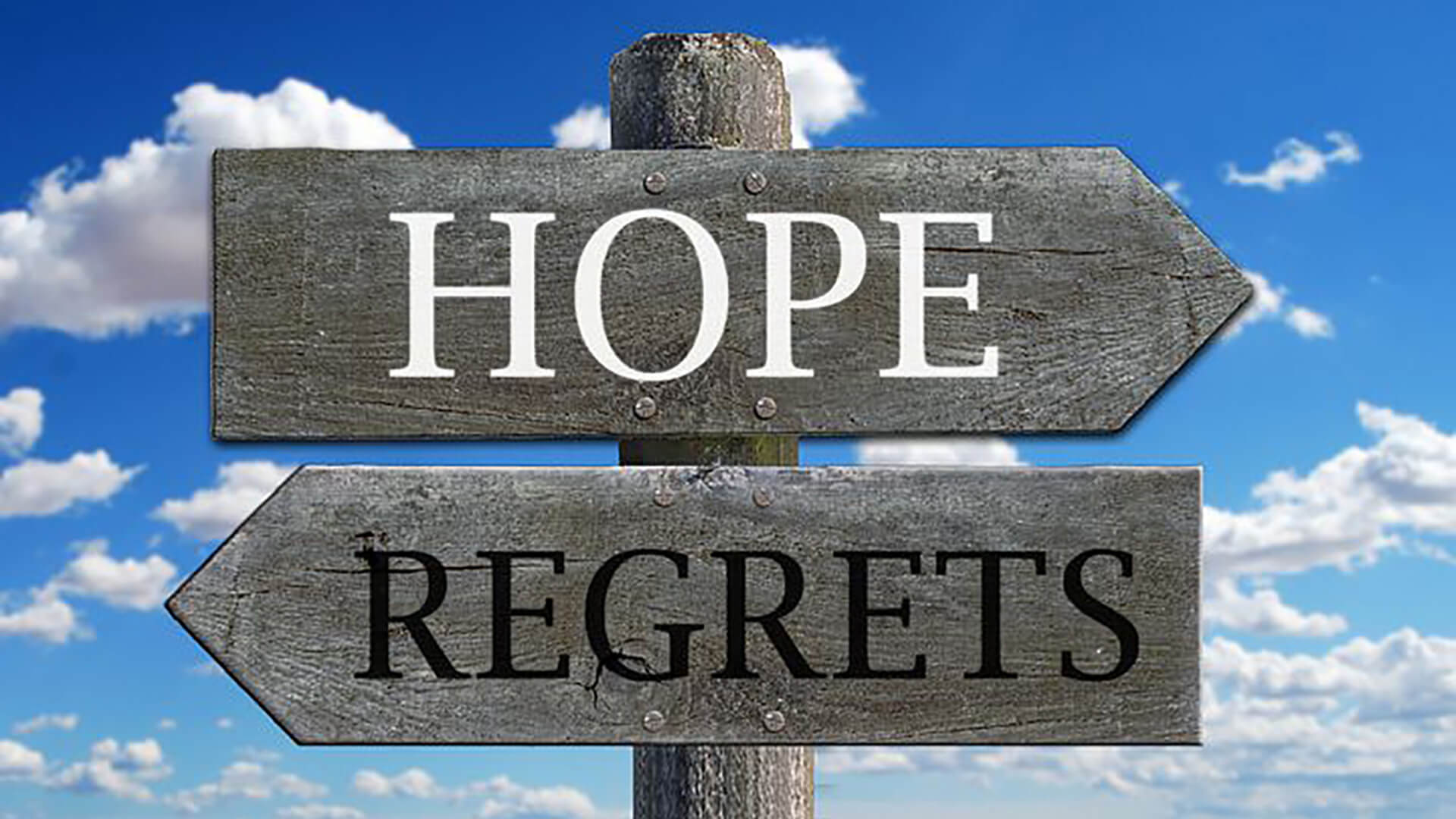
Regret feels bad because it comes with a sense of personal failure, is often visible to those around us, and is accompanied by self-blame, shame and sometimes guilt. Studies show that regret is a common emotion, 70% of adults having a significant sense of regret. While those studies demonstrate the most common sources of regret involve education, career, romance and parenting, I’ve found with physicians who seek support that their regrets involve relationships, career choices, medical mistakes,
choices related to alcohol or substance abuse, or choices that adversely impact work-life integration. Researchers point out that regret related to inaction is more difficult to navigate than regret related to choices that turned out badly because the possibilities with the former are almost limitless as opposed to the more concrete consequences of the latter.
Regret can fester because left in isolation we often tend to dwell on it. As Amy Summerville describes “. . . we develop the reflex to chew and chew on an unfortunate turn of events, like a cow on its cud, till there is no nutrition left in it.” This can be paralyzing when major, life altering events occur that involve regret unless we reframe regret into something constructive.
All major religions and spiritual belief systems share a common theme that author Richard Rohr describes as the order→disorder→reorder cycle. Examples abound: traditional Native American cultures use metaphoric cycles of day-night-sunrise or the order of seasons, world mythologies consistently tell stories in a journey-fall-return to a new home pattern, recovery programs explore innocence-addiction-recovery, Christianity centers around life-death-resurrection. The list is endless but the point is the same: in any life, chances are we will at some point encounter what mystics called the “dark night of the soul,” a crossroads, with regret often a prominent feature, a place from which with some effort we might emerge into a new life that has not only escaped the bonds of regret, but has acquired wisdom from it. Rohr notes that even in distress we attempt to avoid the hard work of real change, the orderly progression from disorder to reorder and we often attempt to “jump from stage I to stage III,” of this common cycle, bypassing the personal growth that comes from confronting regret.
The liminal space between disorder and reorder is often described as a wilderness, a time of disorientation and unsure footing where the pathway out may be obscure. Discovery of that path is deeply personal and requires naming and confronting regret, openness and accepting support from family, friends, counselors, pastors, or a colleague, many of whom probably inhabited that same space at some point. It requires looking inward, self-compassion, a sense of hope and, perhaps the hardest part of all, patience. While in the wilderness, if we look closely, we may find “angels” that were sent to protect us, sometimes in the most unexpected places.
Author David Whyte sums it up well, “Sincere regret may in fact be a faculty for paying attention to the future, for sensing a new tide where we missed a previous one, for experiencing timelessness with a grandchild where we neglected a boy of our own. To regret fully is to appreciate how high the stakes are even in the average human life. Fully experienced, regret turns our eyes, attentive and alert to a future possibly lived better than our past.”
By: Brian S. Sayers, MD
Dr. Sayers is the Chair of the Physician Wellness Program (PWP) at the Travis County Medical Society (TCMS). The PWP provides many programs to prevent physician burnout and suicide, including 4 free counseling sessions for TCMS members. Our Deep Eddy therapists are proud to partner with the PWP in providing these sessions.
